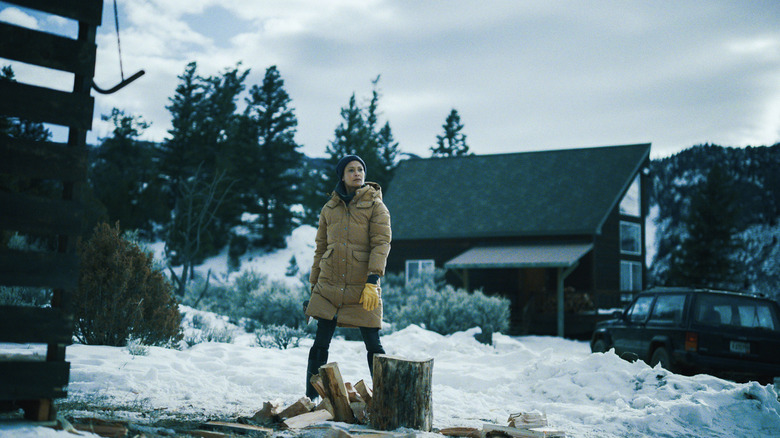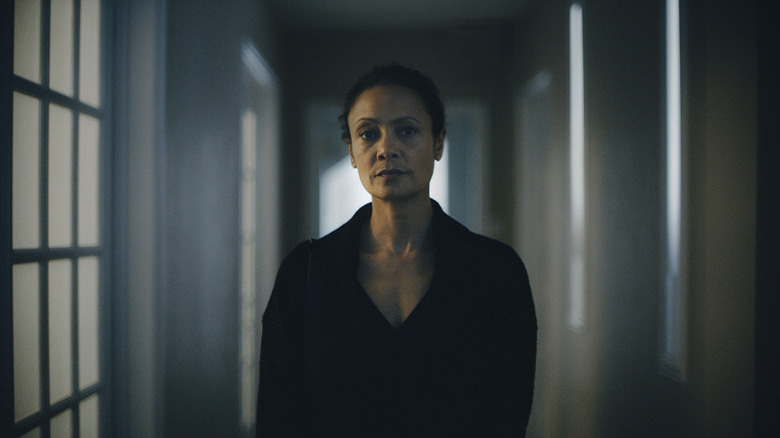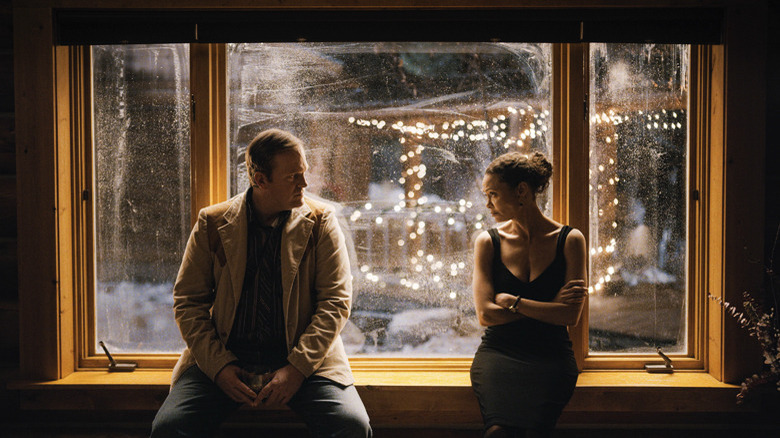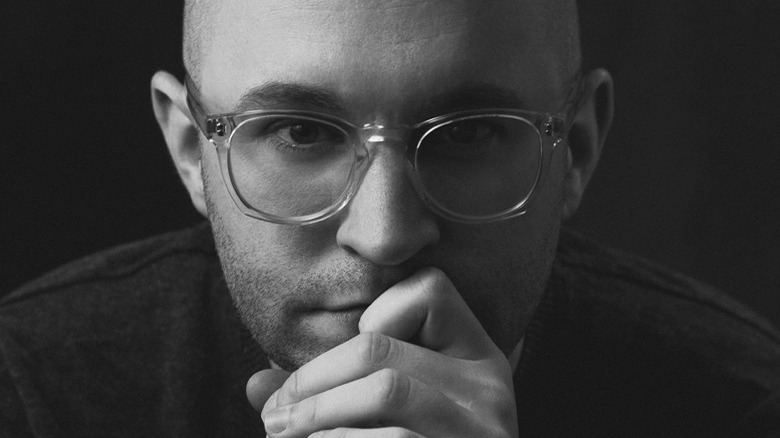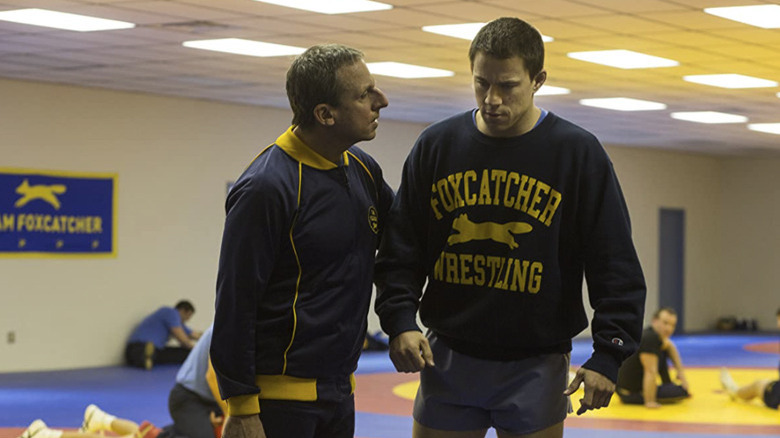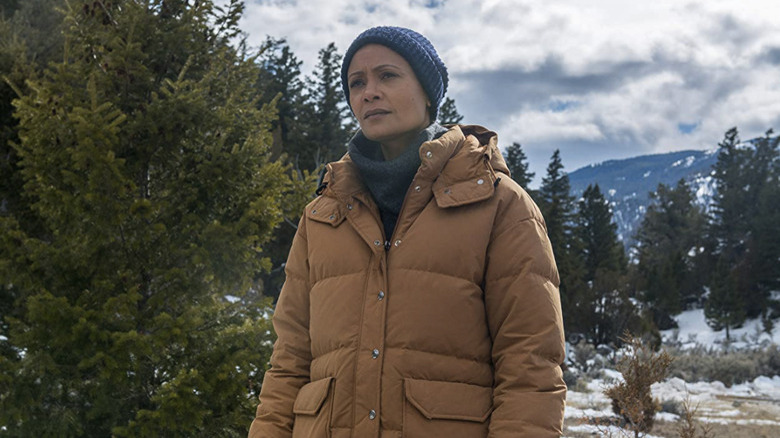God's Country Filmmakers On Their Pressure Cooker Western And America's 'Rotten Foundations' [Interview]
Thandiwe Newton ("Westworld") is in almost every frame of "God's Country," a solid neo-Western which premiered at this year's Sundance Film Festival. As her grieving character is pushed around and the systems around her fail to properly protect her, she takes matters into her own hands — with disturbing consequences. These violent delights have violent ends, indeed.
"God's Country" marks the feature directorial debut of Julian Higgins, who co-wrote the screenplay alongside Shaye Ogbonna. I sat down with the two of them over Zoom to talk about their influences for this project, some of the movie's biggest themes, and whether shooting in the isolated wilderness was truly as bone-chilling as it appeared on screen.
A Modern Western
I want to start by asking about the writing process. When you were initially kicking ideas around for this story, what came first: the genre, a character, or a specific moment?
Ogbonna: Well, it was probably the genre first, because it was based on the short story "Winter Light," which Julian had already made a more direct adaptation of a few years back. And me and Julian are both fans of the Western. It's also a genre we like to work in because we can examine some issues that we want to examine, and do it in a way that is rooted in character and in the landscape and in the terrain. I think the genre was there first and then came the idea to change the character, if I remember correctly.
Higgins: Well, that was certainly where our conversation began. I was thinking of the scene where one of the hunters says, "I heard of about you," to the main character. And in the short story, it's one white man talking to another white man, so then it's just about, "Oh, he's this cantankerous guy who lives in a canyon." But when that character that's being said to becomes a 40-something Black woman, "I heard about you," means all kinds of different things. And that was what we wanted to get into, was the subtext there and see what that change would do to the subtext of the whole story. I went to Shaye for a bunch of reasons. We'd had important conversations between us about what we were trying to do at the time. This was 2016, early 2017. We were feeling very galvanized and wanting to engage with what we saw happening in the country. He came to mind immediately. And I know that he's so fascinated by the Western. And so we started talking about this idea, placing this character in this story and it just really exploded from there. We really didn't look back.
Thandiwe Newton as the "Third Mind"
Did you guys take another pass at the script once you knew you that Thandiwe was on board? Did you tweak anything to better fit her as a performer, or was the script relatively unchanged after she came on board?
Higgins: I have so many things to say about that, but go for it, Shaye.
Ogbonna: You probably have more things to say about it than me. I do not remember tweaking the script, adapting it to her style or performance, or anything like that. I think if anything, when she came on board, she became a third mind, the third brain of the hive mind. And because she embodied the character, it became about her being involved in the crafting of the character through the writing process, but not tailoring it to her. It's about bringing her in.
Higgins: Yeah. I couldn't have said it better, to be honest. I mean, really, Shaye and I learned about the character from her. That's really how I see it. Once we cast her, you give the character to the actor — no matter which role it is, but with somebody as experienced and just intelligent as she is, she understood what we were trying to do. She knew what that meant. She responded to it in a very profound way, I believe, and she immediately started trying to help tell that story. And we just said, "Yes, please, tell us everything. We're here to learn."
The Breakdown of Institutions
One of the things I found so interesting about this movie is the question that you guys seem to pose here, which is how far is too far? And not only that, but in a rigged system, is there even such a thing as the concept of going too far? I was wondering if you could talk a little about the themes and ideas you guys were trying to explore in this movie.
Higgins: Oh, where to even begin with that, because this was our conversation for months and months as we were working on the script. Before we ever wrote a word, we spent six months talking about the things we cared about politically, socially, the history of the country, our personal histories. We have all of this raw material and this little tiny contained story is the shape that we're going to try to fill with all of these ideas. And the fact that it's such a simple story is very helpful because it allows you to build out all that subtext. I'm not sure if I'm really addressing your question, but yeah. Why don't you jump in that area?
Ogbonna: I mean, obviously one huge thematic element of the film is about the breakdown of institutions, but I think that my perspective on it is, something I wanted to just point out that I think we explored in the film is that these institutions that broke down were built on rotten foundations. I think the analogy is there's a cancer. There was already cancer there in our fabric in America, and what we built here was already was built on a rotten foundation. And if that's never addressed, if it's never cut out, if we never try to reconcile with it, eventually it's going to infect the entire body, which is the country. You know what I mean? And so these institutions that we were exploring the breakdown of, the opening slide show, I think, addresses it: This idea of American exceptionalism that has been bandied around is a fallacy to a certain extent, or for some people whose voices have been [kept quiet]. It's a fallacy to us. We don't look at it the same. And there's a damage that has been done to a lot of people in order to promote this ideal of American exceptionalism, but I think we address it from the opening frame. So that's the way I looked at it in terms of exploring these themes. This is about the breakdown of institutions, but we're also saying those institutions were built on a very rotten foundation.
Higgins: Yeah. And I think that the idea of a pressure cooker. It's one thing, just the pressure of the scenario of trespassing and her stuff at work. But it's also this much bigger pressure of this incredibly fine line that she is expected to walk at all times. And she can't make a single mistake and she's not allowed to have any emotions or she's just disqualified. That's the point of view that we wanted and the experience that we wanted the audience to be with, no matter who they are. And so our work was actually moment to moment just allowing the audience to see what that experience feels like in some way, or at least gesture at that. There's a lot of choices we made in support of that. I don't know. Ben, did that address your question?
It did. I thought a lot about that when I was watching the movie, and also the idea of "manifest destiny" and just, frankly, how much bull**** that was.
Higgins: Yeah, it's a whole part of the country's history that we pretend now doesn't exist. Or, even worse, pretend it's consistent with the ideals of the country. That was part of what we're trying to dismantle here.
Managing Tone
So there are some revenge thrillers that are really fun to watch. You feel a catharsis and maybe you pump your fist as the protagonist gets even with the people who have wronged them. "God's Country" is not that movie. The continuing escalation in this film gave me a sinking feeling in the pit of my stomach. And, Julian, I was curious if you could talk about managing the movie's tone once it went from words on a page to actually being in production.
Higgins: I mean, the words on the page, we approached the script extremely stripped down. The idea was to try to eliminate anything that wasn't actually necessary. It was a very short script. It was 74 pages. And it didn't have much dialogue. We tried to de-emphasize dialogue in the storytelling as much as possible and really talk about someone doing something. That was the mechanism. We didn't want the movie to be preachy. We didn't want there to be big monologues explaining the themes. We just wanted someone to be doing something and dramatize these ideas. And so then, when you come to shoot that, you have actual scenes where someone's trying to do something that are little pieces, but the whole thing accumulates. It's a cumulative experience more than anything. The work with my editor, Justin LaForge — which, because of our shutdown during the pandemic, we got a lot of time to experiment with the footage — was really about trying to manage that pace you're talking about, where it's a slow and steady escalation, and the movie has this inevitable feeling. That's what we were trying to accomplish from the very first scene. It's going somewhere and we're not including anything that's not necessary. That was the strategy. Did you want to talk about some aspect in particular? Because I could seriously talk about this all day. You've got to rein me in.
Influences and Inspirations
No, that was perfect. One other thing that I thought about right after I finished watching it is Joel Schumacher's "Falling Down." That's another movie that is very much about somebody being pushed to the brink, but it's told from a wildly different perspective. I was curious if you guys looked at that film or any other film for inspiration, or maybe for things that you wanted to avoid?
Ogbonna: We looked at quite a few films. One film in particular I remember that we really looked at and studied was the film "Lady Macbeth" with Florence Pugh.
Oh man, that's been on my watch list for a few years and I still haven't made the time to see it.
Ogbonna: Again, it's centered on this woman, and it's so stripped down. It's very stripped down to the studs, and it's exploring some of the same things we're exploring in terms of a woman that's being oppressed. And then there's even another character, a woman of color, a Black woman in the film, who I think plays her [servant of some kind]. She's in a subservient role, and you even get a sense of it from her perspective. So we watched a few, but that was a film that I remember we really studied.
Higgins: That was a useful film because it is, as Shaye said, it's so minimal. And it is not at all concerned if the audience understands it on a moment to moment basis.
Ogbonna: It does not care, at all.
Higgins: That was really empowering to see for us. Another movie that I found, just really influential for me in general, but specifically with this movie, was "Foxcatcher," which I just think is a masterpiece just in the way that, in that film, you know what it's talking about, but it never comes out and says it. It's dramatized through the characters and the emotions. That's really what we were striving for as well.
There's a stillness in that movie which, now that you say that, I can see it reflected a little bit in "God's Country" as well.
Higgins: Well, that's a huge compliment for me.
Ogbonna: Yeah. We talked about "Foxcatcher" a lot. That was one of the films that we both liked. I don't even know how we both talked about it, but I think one of us mentioned "Foxcatcher" and the other one was like, "Oh man, I was obsessed with that movie." That was when we realized we had similar sensibilities.
Higgins: But it's interesting because Shaye and I looked at movies together as part of the writing process. It's sort of what got us started. We would watch movies and break them down together and just discussed how they were structured. But then when it came time to shoot the movie, my cinematographer and I don't really look at films together. And there's not really that same kind of reference thing. It was really more about, "Okay, here's a movie that feels like it's doing something like what we want to do," and really trying to get inside it and see, "Okay, how did they build this? What are the building blocks? What are the scenes? What order are they in?," and then understand that to just inform our own work.
Filming Conditions
I think I have time for one more really quick question for you, and it'll be a silly one. Was it as cold and miserable and chilled to the bone in real life as it looked like in this movie? Because some of the weather stuff, the icy tundras that you guys were filming in, it just looked brutal out there. What was the filming experience like?
Ogbonna: I'm a Black man from the south, so if it gets below 70 degrees, I'm freezing.
I'm coming to you from Florida right now, so I understand what you mean.
Ogbonna: There we go. I remember the first day, I think it was like one degree. The weather seemed fine. We were there for a few weeks before we started shooting, and the weather just seemed fine to me. It was cold, but there was something invigorating about it. Then we went out to shoot, and that's when you realize the landscape. The first shot is the shot with Thandie, she's burying her mother and she's using a pickaxe to break the ground. She's on this elevated rock on this overlook, the wind's blowing. She's a very slight person, so I don't know how she managed it. I ended up — I had to go inside. I was freezing.
Higgins: And see, for me, I'm from rural New Hampshire. I was constantly whining about how there wasn't enough snow. It wasn't cold enough. We shot too late. So I'm so happy that you think there's lots of snow and ice in the movie, because we shot this in the spring. The snow that's in the movie is all the snow there were was.
Well, it looks great. Thanks for speaking with me. And I really enjoyed the movie, so congratulations on it.
Higgins: Thank you, Ben.
Ogbonna: Thank you, Ben. Appreciate it.
"God's Country" is currently playing at the Sundance Film Festival, but as of this writing, it does not have distribution.
